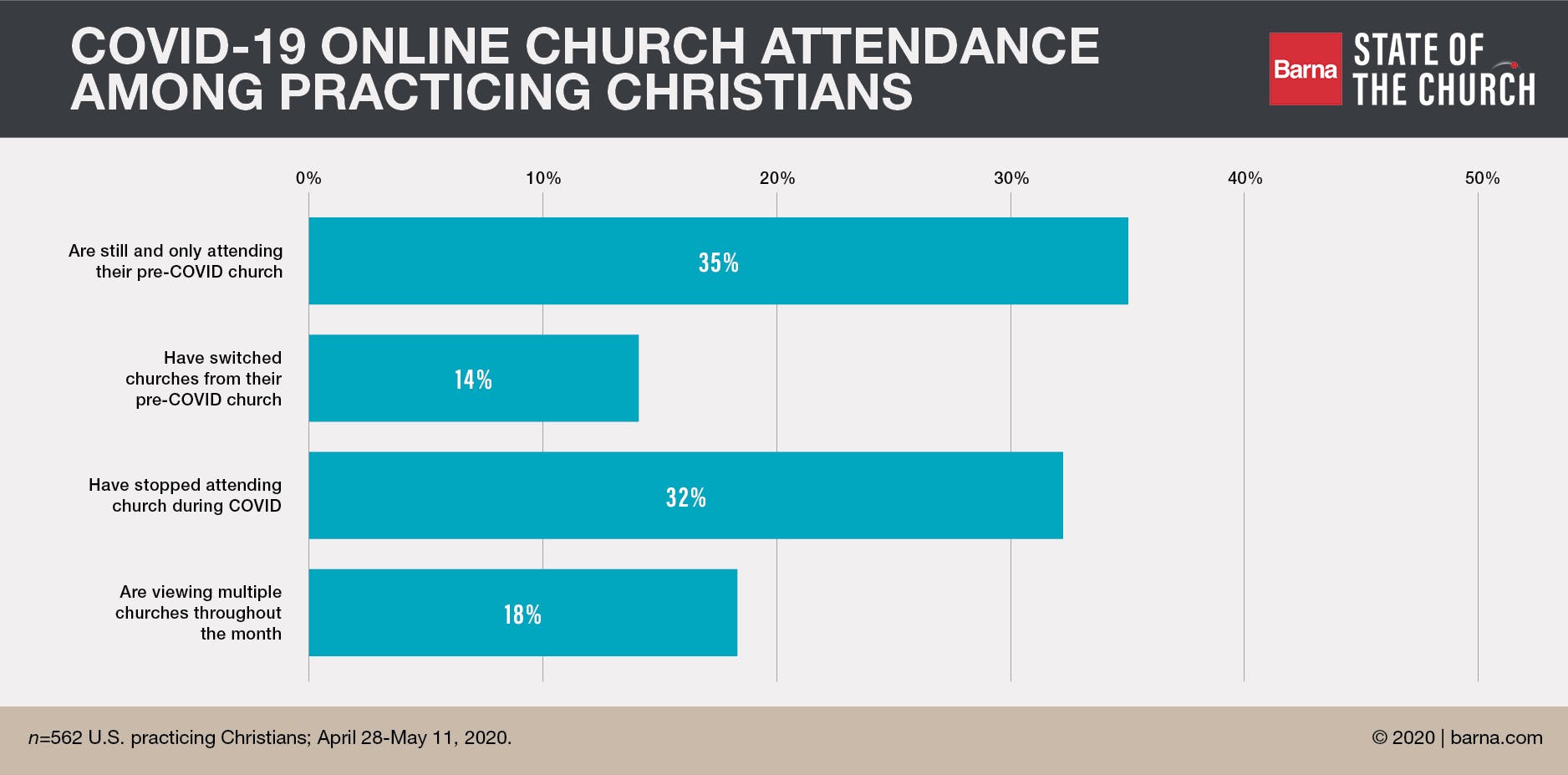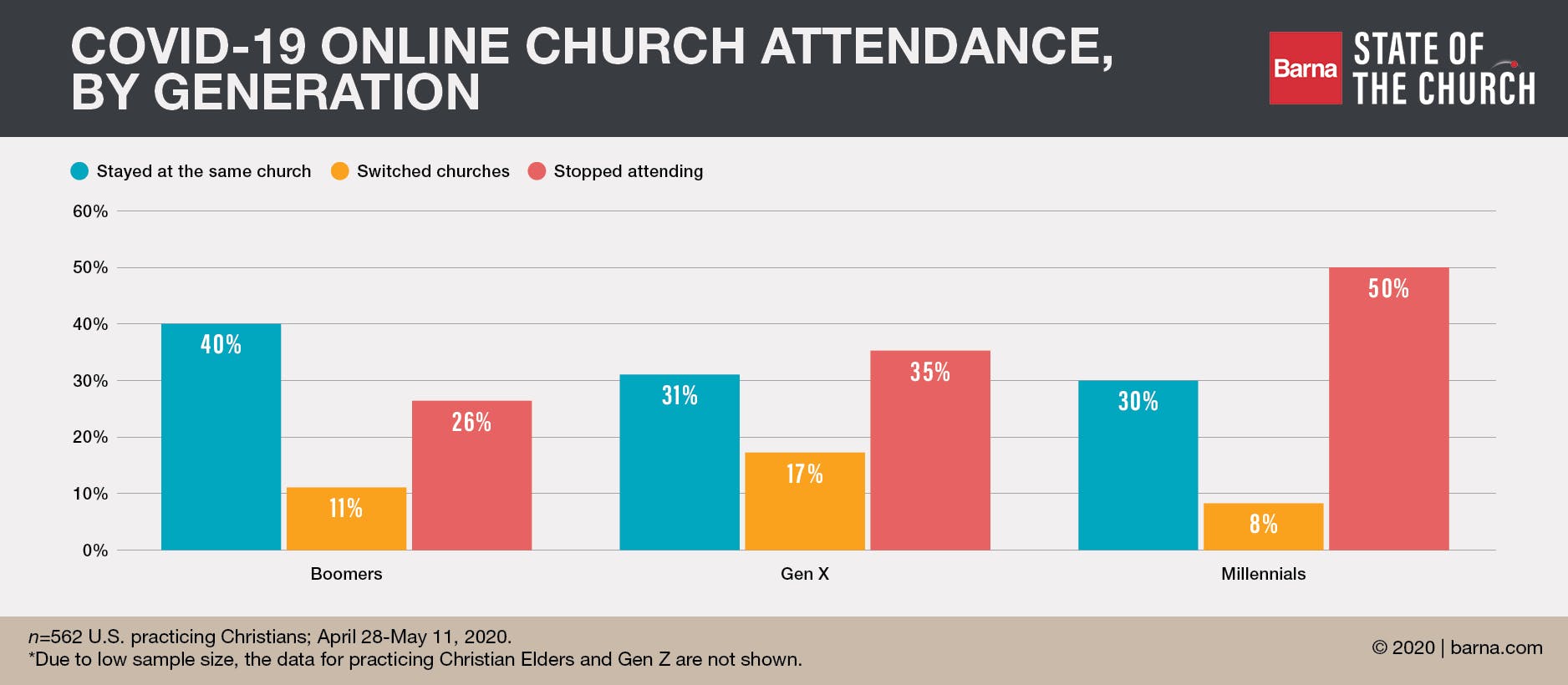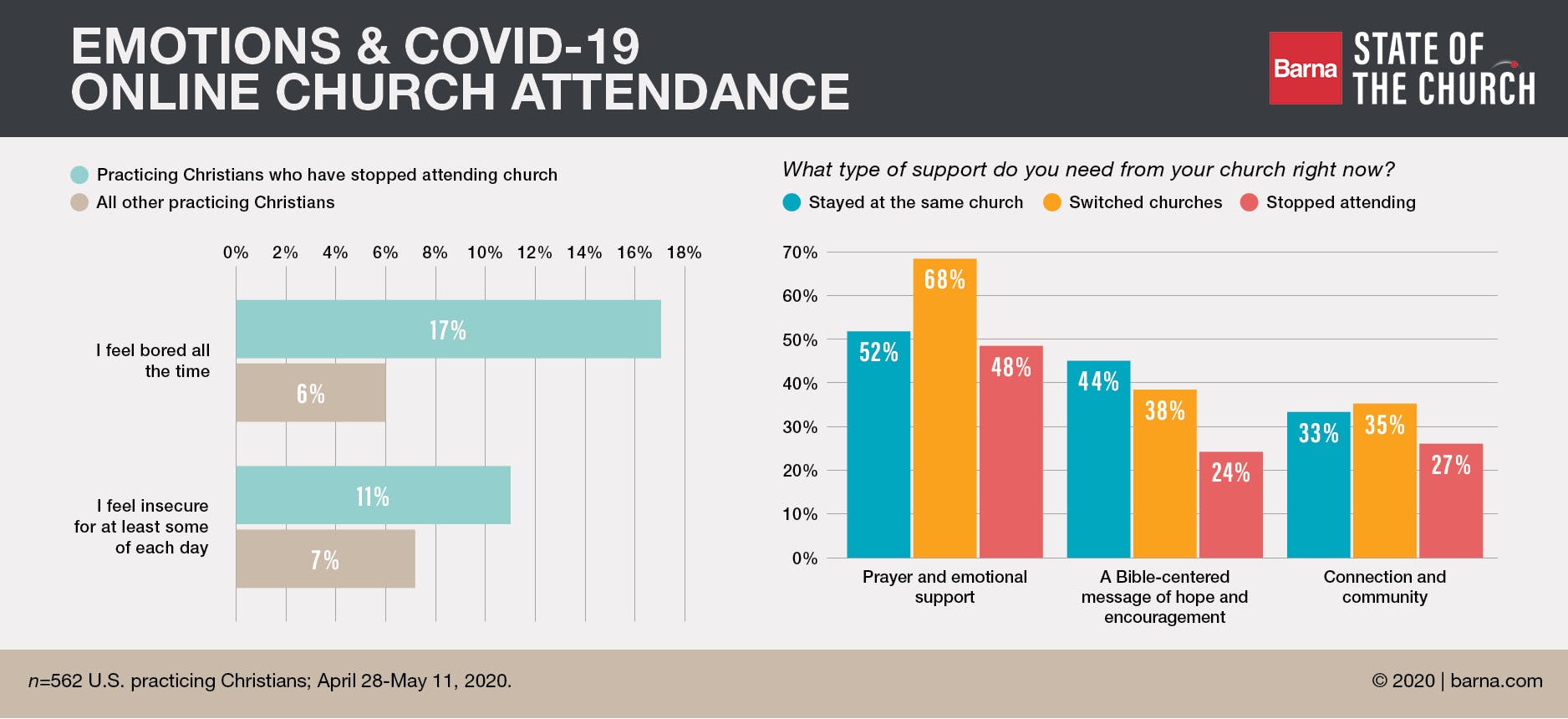Recently, we revealed our findings about “The New Sunday Morning,” highlighting trends in church attendance and engagement since the nation’s response to COVID-19 began in March of this year and social distancing pushed services online. Now, we’re taking a closer look at the groups of Christians we identified and the generational and emotional trends among each.
Our researchers identified a few types of churchgoers in this unique era of digital church:
- Christians streaming their pre-COVID-19 church online
- Christians streaming a different church online, and
- Christians who have stopped “attending” church altogether.
- (It should be noted, there is a segment of people who, prior to the pandemic, were not attending church and are now attending online during the pandemic, but it is not a statistically significant sample.)
In this article, we take a closer look at each of the groups of Christians we identified and the generational and emotional trends among each.
This data was collected in April through May 2020, so percentages mentioned below may have again shifted in recent weeks as the pandemic has progressed. However, the responses shown here – reflecting engagement during the height of the U.S. social- distancing measures this spring – may be instructive for church leaders moving forward, particularly following recent spikes in COVID-19 cases.
1 in 3 is still and only attending their pre-pandemic church
Recent data show that, of those who identify as Christian, agree strongly that faith is very important in their lives, and attend church at least monthly (prior to COVID-19) – more than half say they have streamed their regular church online within the past four weeks.
Another 34 percent admits to streaming a different church service online, other than their own, essentially “digital church hopping.”
Finally, about one-third of practicing Christians (32 percent) says they have done neither of these things. Though some of these churchgoers may be part of the minority of congregations that were still gathering for physical worship during these weeks, we can, for the most part, confidently interpret this group as those who have dropped out of church for the time being.
Some respondents share that, over four weeks, they streamed both their church’s online service as well as a different church’s service, perhaps taking advantage of the variety and surge of digital options. However, the plurality has stayed tuned in to their “home” church even at home (35 percent). Commitment extends to frequency of attendance during distancing as well; practicing Christians who stream the same church they attended before COVID-19 are significantly more likely than those who have switched churches to attend on a weekly basis (81 percent versus 65 percent).
We see that very few (14 percent) have actually made a church switch amid the pandemic. It is more likely for a Christian to have stopped attending church altogether during the pandemic. In fact, 32 percent of practicing Christians have done just that. The remaining 18 percent of practicing Christians are viewing worship services from multiple churches throughout the month.

Half of practicing Christian millennials aren’t watching online
A profile of these groups of online churchgoers reveals a strong generational pattern. When asked if they had attended church within the past four weeks, exactly half of practicing Christian Millennials (50 percent) say they have not. The percentages of Gen X and Boomers who have stopped attending online services (35 percent Gen X, 26 percent Boomers) are lower than among their younger counterparts, but still show the impact of COVID-19 precautions and regulations on what used to be a regular practice.
Though younger generations might be more accustomed to digital routines and innovations, their tenuous relationship with institutions seems to persist during this era of digital church.
While we can’t report on Elders on their own here due to low sample size, it’s important to note that the Elder and Boomer groups combined make up more than half of the practicing Christian population in the U.S (56 percent).
Though younger generations might be more accustomed to digital routines and innovations, their tenuous relationship with institutions seems to persist during this era of digital church. These trends highlight the importance of churches continuing to reach out to and disciple younger generations, especially those who are seemingly falling away during the pandemic.

Those no longer attending church bear more emotional burdens
Among practicing Christians who have lessened or completely stopped digital worship attendance, Barna data show that individual flourishing – a term we apply to new research-backed metrics church leaders can use to encourage spiritual and personal growth among their people – is also hindered.
This can be observed, for example, in the way respondents answer questions related to certain emotions. Respondents who have stopped attending church during the COVID-19 pandemic are less likely than their peers who are still attending the same church to agree with the statement “I am not anxious about my life, as I have an inner peace from God” (76 versus 87 percent).
Practicing Christians who have stopped attending church in recent weeks are more likely than all other practicing Christians to say they feel bored “all of the time” (17 percent vs. 6 percent) or that they have felt “insecure” for at least some of each day (11 percent versus 7 percent).

Non-attenders still want their church community’s support
We can’t determine the exact cause or direction of these correlations – and certainly, during a pandemic, the factors impacting well-being are many. But these are at least indications of a more challenging emotional climate for those who are not presently part of a church community.
What we do know is that churchgoers – even those who have stopped regularly attending worship services during the pandemic – want support from a church community. Practicing Christians across the U.S. are seeking “prayer and emotional support” and “a Bible-centered message of hope and encouragement” from their churches.
Photo: Dan McCullough on Unsplash
